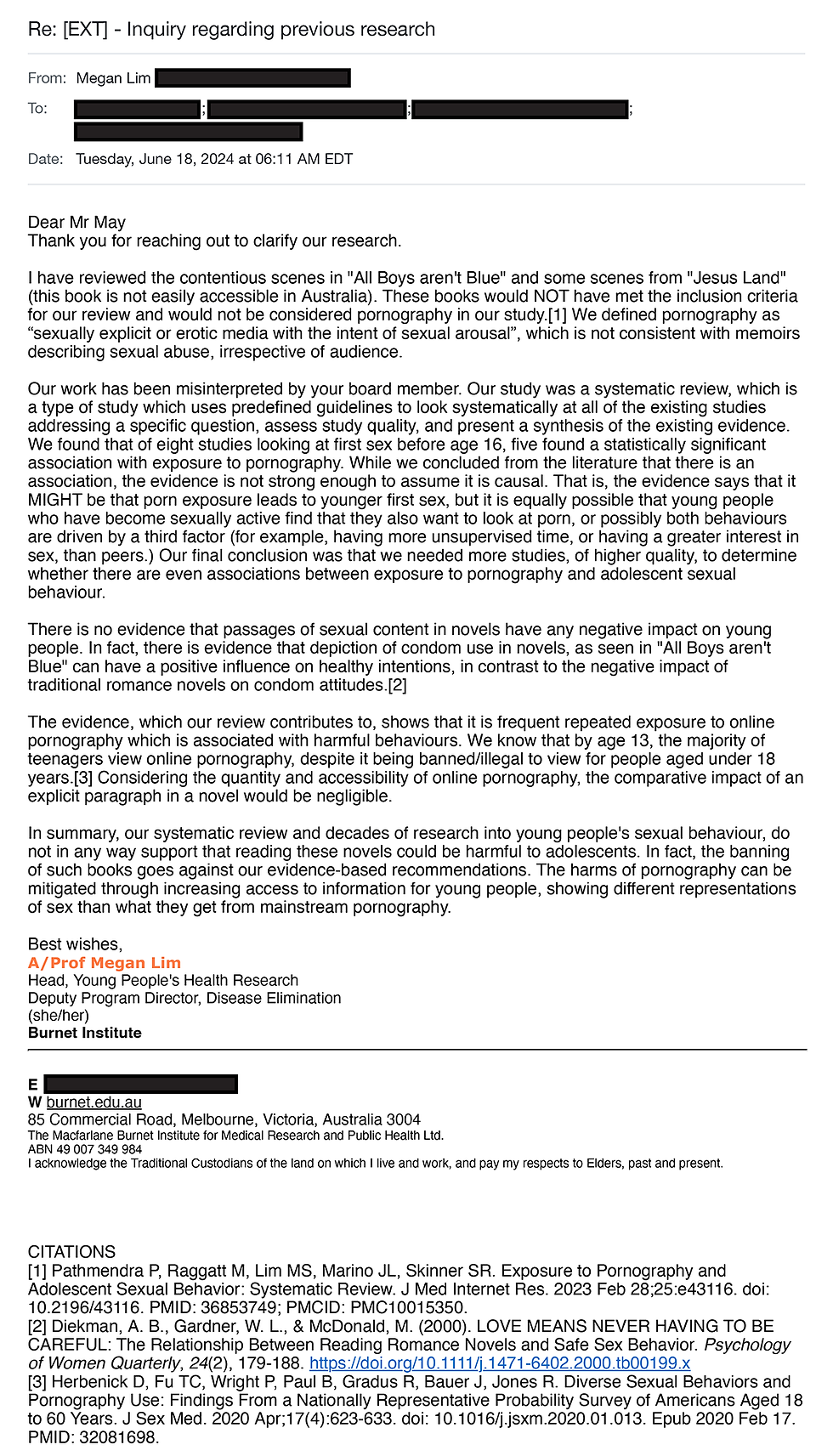Setting Some Facts Straight on Potential CHS Library Book Removals
- Jim May
- Jul 19, 2024
- 4 min read
At the June 10, 2024 CCS board meeting, the board took its first vote on a library book review recommendation. This is part of a process put in place to comply with portions of Indiana state law HEA 1447 which went into effect January 1, 2024. The relevant portions of the law prevent school libraries from providing access to materials that are obscene or harmful to minors.
During the course of the board’s discussion, member Greg Brown made several incorrect statements. Let’s look at the two more egregious. Depending on the degree to which Mr. Brown knew they were incorrect, they demonstrate either a lack of competence, intentional dishonesty or a combination of both.
Not What the Research Says
At one point, Mr. Brown claimed to have “spoken to professionals” about books with sexual content and said that “there was a lot of concern that this could trigger some behaviors that are detrimental.” When board president Kristin Kouka asked him about these professionals, Mr. Brown changed his story and said he had read research published by the National Institute of Health. Specifically, Mr. Brown said:
”There’s a study. The National Institute of Health, NIH, did a, reviewed, 19 studies that dealt with the harm of pornographic material to minors. And they looked at 19 studies and it’s exhaustive and I’ll just summarize that it’s a big warning. We need to be very careful in what we do with that.”
Following the meeting, a fellow CCS supporter reached out to the board requesting more information on the NIH review, to which they received a link in response. As someone who is always willing to update my views and opinions based on data and research, I was eager to review the NIH research. Just from reading its introduction, it seemed obvious Mr. Brown had either misunderstood or misrepresented it. So, I reached out to the team of researchers who performed the review to get their thoughts. My inquiry and their response follow.


In short, Mr. Brown cited research that directly opposed his position and misrepresented it, whether intentionally or unintentionally, as supporting his position.
Not How Laws Work
During the meeting, Mr. Brown also demonstrated a complete lack of understanding of how laws work. This is especially troubling considering that one of the board’s chief duties is to ensure our schools’ compliance with the law. His relevant comments were:
“There’s seven elements to this law that’s been on the books for some time, actually, the definition of obscene and the other one. That has three elements, and definition of harmful to minors, remember to keep that in your mind, it’s harmful to minors, there’s four elements. This book, I don’t think anybody would argue, contains three of those elements of the law that are brought to our attention. So this book, and other books in our libraries, have obscene content and materials that are harmful to minors. So they have that. What we’re talking about is, there’s a story here to be told that could help some children and it may be in conflict with other people in the community, and to Louise’s point, that’s the way we are. We don’t all see things the same way.”
Again, that is not how the law works. When something must meet four criteria to be classified a certain way, it MUST meet ALL four criteria to attain that classification.
When it comes to the specific definitions of obscene matter and material harmful to minors, most people very easily and intuitively grasp the reason the laws are written the way they are. Most people can instantly tell the difference between a pornographic film and movies like Braveheart, Titanic, Schindler’s List or The Shawshank Redemption. Under Mr. Brown’s completely erroneous explanation of the law and the concept behind it, we would say “Braveheart has obscene content and materials that are harmful to minors, but there’s a story there worth telling.” It’s absurd. While parents may disagree on when they allow their kids to watch PG-13 and R-rated movies, the law very clearly does not consider them to be either obscene or harmful to minors. Indeed, those legal definitions are specifically written to exempt them from those classifications.
Put in another context, Mr. Brown’s theory of the law would suggest that someone in a wheelchair is operating a vehicle while intoxicated if they have several beers with their dinner. Using Mr. Brown’s legal reasoning, we would say, “Well, they’re operating a vehicle while intoxicated, but we let them do it because one of the elements of the law is that devices moved by human power aren’t considered vehicles.”
It’s simply not how laws work. When a law effectively says a thing is not A if it is B, it doesn’t mean the thing really is A, but we allow it because of B. It’s simply not A.
Additional Info
The book under consideration at the June 10 meeting was All Boys Aren’t Blue by George Johnson. Those who missed the initial discussion and vote and would like to view them can check them out at the following links:
Public Comments – https://youtu.be/IVhBObe5dE4?si=m2D-b--MA-eclQf5&t=1652
Board Discussion - https://youtu.be/IVhBObe5dE4?si=paMaFBhh0ea2Zmzp&t=3644







Comments